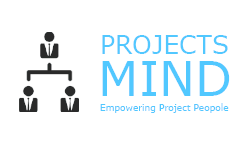Time Management Secrets from Successful Project Managers
Introduction
Effective time management is crucial for project managers to ensure project success. In this article, we will explore the time management secrets employed by successful project managers that can help you improve your own project management skills.
1. Prioritize Tasks
Successful project managers understand the importance of prioritizing tasks. They identify critical activities that directly impact project objectives and focus their efforts on those tasks. By prioritizing, they ensure that the most important activities are completed on time, while less critical tasks are delegated or postponed.
2. Create a Schedule
Creating a detailed schedule is essential for effective time management. Successful project managers develop a project timeline that includes all project activities, milestones, and deadlines. They update the schedule regularly, keeping it realistic and accommodating changes. A well-planned schedule helps them stay organized, monitor progress, and adjust resources accordingly.
3. Delegate and Empower
Delegation is a key time management strategy. Successful project managers understand that they cannot do everything on their own. They delegate tasks to team members based on their strengths and expertise. By empowering team members, they not only reduce their own workload but also develop the skills and capabilities of their team, leading to improved efficiency and productivity.
4. Set Realistic Expectations
Setting realistic expectations is crucial for effective time management. Successful project managers carefully analyze project requirements and constraints to establish achievable goals and timelines. By communicating these expectations to stakeholders and team members, they ensure everyone is on the same page and can work towards the project’s success within the given time frame.
5. Utilize Time Management Tools
Successful project managers leverage time management tools to enhance their productivity. They use project management software, task tracking applications, and calendars to organize their work, set reminders, and manage deadlines. These tools help them stay focused, centralize project information, and avoid time-consuming manual processes.
6. Avoid Procrastination
Procrastination can be detrimental to project success. Successful project managers understand the importance of taking immediate action. They tackle tasks promptly, addressing potential issues before they escalate. By avoiding procrastination, they maintain momentum, minimize delays, and ensure that the project progresses as planned.
7. Practice Effective Communication
Effective communication is vital for time management. Successful project managers establish open and transparent communication channels with stakeholders and team members. They conduct regular meetings, provide updates, and clarify expectations. Clear communication helps to prevent misunderstandings, reduces time wasted on resolving conflicts, and keeps the project on track.
8. Embrace Flexibility
Successful project managers embrace flexibility to adapt to unexpected changes. They anticipate potential risks and have contingency plans in place. By being flexible, they can respond promptly to changes, adjust schedules, and allocate resources accordingly. This adaptability enables them to keep the project on track despite unforeseen circumstances.
FAQs
Q: How can I prioritize tasks effectively?
A: To prioritize tasks effectively, start by identifying critical activities that directly impact project objectives. Rank them based on their importance and urgency. Focus your efforts on completing high-priority tasks first and delegate or postpone less critical tasks.
Q: What are some common time management tools that project managers can use?
A: Common time management tools used by project managers include project management software (such as Microsoft Project or Jira), task tracking applications (like Asana or Trello), and calendars (such as Google Calendar or Outlook).
Q: How can I avoid procrastination in project management?
A: To avoid procrastination, break down tasks into smaller, manageable chunks. Set specific deadlines for each task and hold yourself accountable. Create a work environment that minimizes distractions and stay focused on the project’s objectives and milestones.
Q: How important is effective communication in time management?
A: Effective communication is crucial for time management. It helps in setting realistic expectations, preventing misunderstandings, resolving conflicts promptly, and keeping everyone aligned and informed. Strong communication channels save time by reducing the need for clarification and rework.
Q: What should I do when unexpected changes occur during a project?
A: When unexpected changes occur, embrace flexibility. Evaluate the impact of the change on the project’s timeline and objectives. Adjust schedules, resources, and priorities accordingly. By having contingency plans in place, you can respond promptly and keep the project on track.
Q: How can I empower my team members through delegation?
A: Empower your team members by delegating tasks based on their strengths and expertise. Provide clear instructions, assign appropriate authority, and trust them to deliver results. Regularly communicate expectations, provide guidance, and offer support when needed. This empowers team members and fosters a sense of ownership and accountability.
Q: What if I am overwhelmed with too many tasks?
A: If you are overwhelmed with too many tasks, seek support. Delegate tasks to team members, collaborate with stakeholders to reprioritize, and communicate your workload to your superiors. Utilize time management tools to organize and track your work, and consider seeking assistance or training in time management techniques.
Q: How often should I update the project schedule?
A: The project schedule should be updated regularly to reflect any changes or progress. Aim to review and update the schedule at least weekly, if not more frequently, depending on the project’s complexity and rate of change.
Q: Can time management tools improve team collaboration?
A: Yes, time management tools can improve team collaboration by centralizing project information, facilitating task assignment and tracking, and providing clear visibility of deadlines and milestones. They help team members stay organized, coordinate efforts, and communicate effectively.


Recent Comments